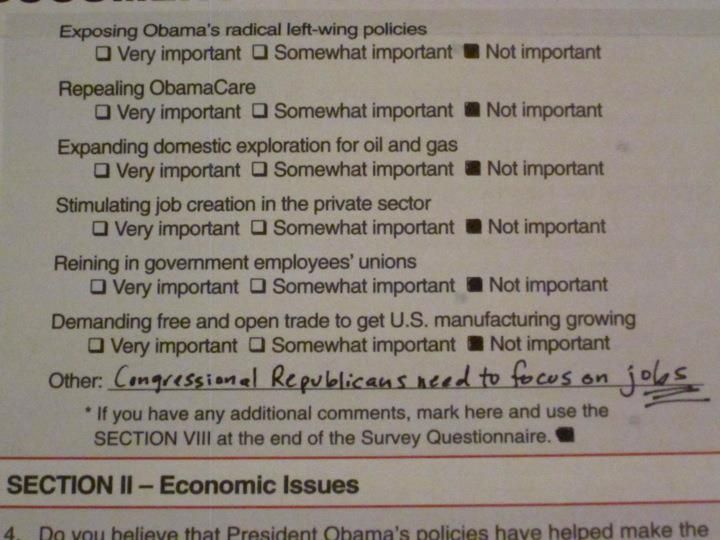Starry Messenger
Starry Messenger's JournalFox Won't Disclose News Corp. Testing Contracts At Heart Of The Chicago Teachers' Strike
Not only are most of their commentators infomercial presenters for Romney, they are also hip deep in corporate edu-business. Read on!
http://mediamatters.org/blog/2012/09/19/fox-wont-disclose-news-corp-testing-contracts-a/189993
In 89 segments between September 10 and 16, Fox News reported on the Chicago Teachers Union's strike without disclosing its financial ties to the educational technology company administering the standardized tests with which the union takes issue.
Fox News parent company News Corp. acquired a 90-percent stake in Wireless Generation in 2010. Last May, the company agreed to provide Early Mathematics Assessment Services and Early Literacy Assessment Services to Chicago Public Schools. These contracts total $4.7 million. A central reason the Chicago Teachers Union decided to strike is their objection to the school district's call for heavily weighing such standardized testing to ultimately determine teacher pay and layoffs.
But Fox News anchors and reporters never once disclosed its parent company's ties to Wireless Generation even as the network routinely criticized the strike and the Chicago Teachers Union.
The programs that covered the story most often:Fox & Friends (including the First, Saturday, and Sunday editions) with 31 segments over the entire week; America's News Headquarters aired 12 segments this last weekend alone; America Live was next with 7 segments; and Fox Report with Shepard Smith and Special Report followed with 6 segments each. Not one segment disclosed News Corp.'s business relationship with Wireless Generation despite repeated mentions and discussions of the teacher evaluations at the heart of the strike.
Well we knew they were shameless, but still. This is bottom-feeding the shameless-barrel.
Standing up for teachers--Eugene Robinson
http://www.washingtonpost.com/opinions/eugene-robinson-standing-up-for-teachers/2012/09/17/ad3ee650-00fd-11e2-b257-e1c2b3548a4a_story.html<snip>
It has become fashionable to blame all of society’s manifold sins and wickedness on “teachers unions,” as if it were possible to separate these supposedly evil organizations from the dedicated public servants who belong to them. News flash: Collective bargaining is not the problem, and taking that right away from teachers will not fix the schools.
<snip>
The fact is that teachers are being saddled with absurdly high expectations. Some studies have shown a correlation between student performance and teacher “effectiveness,” depending how this elusive quality is measured. But there is a whole body of academic literature proving the stronger correlation between student performance and a much more important variable: family income.
Yes, I’m talking about poverty. Sorry to be so gauche, but when teachers point out the relationship between income and achievement, they’re not shirking responsibility. They’re just stating an inconvenient truth.
<snip>
The brie-and-chablis “reform” movement would have us believe that most of the teachers in low-income, low-performing schools are incompetent — and, by extension, that most of the teachers in upper-crust schools, where students perform well, are paragons of pedagogical virtue.
<snip>
Why people look down on teachers
http://www.washingtonpost.com/blogs/answer-sheet/post/why-people-look-down-on-teachers/2012/09/14/0347c52a-fddf-11e1-a31e-804fccb658f9_blog.html#pagebreak<snip>
It’s odd. Even if you’re the most toolish striver — i.e., many of the people I grew up with — teachers are your ticket to the Ivy League. And if you’re an intellectually ambitious academic type like me, they’re even more critical. Like I said, people move to Chappaqua for the schools, and if the graduation and post-graduate statistics are any indication—in my graduating class of 270, I’d guess about 50 of us went onto an Ivy League school — they’re getting their money’s worth. Yet many people I grew up with treated teachers as bumptious figures of ridicule — and not in your anarchist-critique-of-all-social-institutions kind of way.
It’s clear where the kids got it from: the parents. Every year there’d be a fight in the town over the school budget, and every year a vocal contingent would scream that the town was wasting money (and raising needless taxes) on its schools. Especially on the teachers (I never heard anyone criticize the sports teams). People hate paying taxes for any number of reasons — though financial hardship, in this case, was hardly one of them — but there was a special pique reserved for what the taxes were mostly going to: the teachers.
In my childhood world, grown ups basically saw teachers as failures. “Those who can’t do, teach” goes the old saw. But where that traditionally bespoke a suspicion of fancy ideas that didn’t produce anything concrete, in my fancy suburb, it meant something else. Teachers had opted out of the capitalist game; they weren’t in this world for money. There could be only one reason for that: they were losers. They were dimwitted, unambitious, complacent, unimaginative, and risk-averse. They were middle class.
No one, we were sure, became a teacher because she loved history or literature and wanted to pass that on to the next generation. All of them simply had no other choice. How did we know that? Because they weren’t lawyers or doctors or “businessmen”— one of those words, even in the post-Madmen era, still spoken with veneration and awe. It was a circular argument, to be sure, but its circularity merely reflected the closed universe of assumption in which we operated.
<snip>
The Big Business of Charter Schools
http://www.k12newsnetwork.com/2012/08/the-big-business-of-charter-schools-must-read/<snip>
If you are wondering why you should add charter schools to your investment portfolios, here’s David Brain, head of a major investment concern called Entertainment Properties Trust, to tell you.
(video)
Anchor: Well let me ask you about potential risks, here, to your charter school portfolio, because I understand that three of your nine “Imagine” schools are scheduled to actually lose their charters for the next school year. Does this pose a risk to investors?
DB: Well, occasionally — we have Imagine arrangements on a master lease, so there’s no loss of rents to the company, although occasionally there are losses of charters in certain areas and they’re used to peculiar, ug, particular circumstances. In this case it’s a combination of relationship with the supervisory authorities and educational quality. Sometimes educational quality is very difficult to change in one, two, or three years. It’s a long-term proposition, so uh, there are some of these that occur, but we’ve structured our affairs so this is not going to impact our rent-roll [emphasis mine] and in fact we see this as uh maybe even a good experience as the industry thins out some of the less-performing schools and we move on to the best-performing schools.
There are two videos at the link that aren't the kind you can embed here at DU, so it is worth following the link, esp. for the Democracy Now interview on New Market Tax Credits.
"Jobsy the Elephant haz a sad"-or My Adventures With the RNC Donation Survey!!
The RNC decided to send around a donation beg-notice in the form of an "Official Survey!!11" to my house. This thing was monstrously huge and must have cost a fortune to print and bulk mail. You'll notice later on that they grovel for a $15 "Survey tabulating" donation--classy. They also asked on the mail return envelope that you stick a stamp over the bulk mail return postage to save them money. Naturally, I declined.
Instead they will get some new artwork, courtesy of Starry Messenger from my empire here in Revolutionary Silicon Valley. I thought I'd share:




July 30, 2012: Harry Bridges Day
http://www.longshoreshippingnews.com/2012/07/july-30-2012-harry-bridges-day-2/
“Labor cannot stand still. It must not retreat.
It must go on, or go under.”
– Harry Bridges
July 28, 1901–March 30, 1990
http://www.peoplesworld.org/harry-bridges-and-the-ilwu-from-wharf-rats-to-lords-of-the-docks/
Harry Bridges and the ILWU From Wharf Rats to Lords of the Docks
The consistent progressive, anti-fascist policies of the ILWU, and its example of militant, democratic unionism under the leadership of Harry Bridges, aroused the fierce enmity and hatred of the ruling circles in the U.S. Beginning in 1940 there were four separate deportation trials of Bridges, all of which failed in their mission to remove Bridges as head of the ILWU and send him back to Australia.
After one of the unsuccessful trials, which had gone to the U.S. Supreme Court, the opinion of Justice Frank Murphy, speaking for the majority, said, “Seldom, if ever, in the history of this nation, has there been such a concentrated, relentless crusade to deport an individual simply because he dared to exercise the freedoms guaranteed to him by the Constitution.”
Despite the massive pressure to accommodate and make his peace with the system, Bridges never compromised his basic beliefs. “My thinking” said Bridges, “is Marxist. And the basic thing about this lousy capitalist system is that the workers create the wealth, but those who own it – the rich – keep getting richer and the poor get poorer.”

California's Prop 32 on political funding is a bill of rights for billionaires
http://www.guardian.co.uk/commentisfree/2012/jul/30/california-prop-32Californians are used to ballot initiatives that claim to do one thing, but in reality do exactly the opposite. However, even by the standards of misinformation now commonplace in our elections, November's most controversial ballot measure, Proposition 32 – which its supporters call "Stop Special Interest Money Now" – really "takes the giddy biscuit", as Bertie Wooster (or, for that matter, Mitt Romney) might say.
<snip>
Its supporters claim that Prop 32 is a balanced measure that limits corporate and union influence on state elections, to the extent allowed by federal election law. Indeed, pro-Prop 32 ads focus on spending in Sacramento by AT&T and PG&E, rather than on spending by labour unions.
In reality, "Stop Special Interest Money Now" would do nothing of the sort. Though AT&T and PG&E (both unionised firms) are undoubtedly peeved at being singled out, Prop 32 would have almost no impact on the ability of corporate executives to contribute unlimited money to candidates or campaigns, but would have a devastating impact on the ability of unions to participate in state politics. Its restrictions on unions are so sweeping that it would prevent them from communicating with their own members on political issues. Worse still, Prop 32 would enhance the ability of super political action committees (PACs), and other wealthy groups that are exempt from the measure, to dominate elections.
This is not genuine campaign finance reform but a bill of rights for billionaires, which would be a game-changer in California politics. California voters have twice before rejected rightwing initiatives to destroy labour's political voice, in 1998 and 2005. Unable to win by honest means, conservative groups decided to come up with something more deceptive this time round.
Claudia Jones--"Complete emancipation of women is possible only under Socialism."
http://rosicrucian1970.blogspot.com/2012/06/claudia-jones-complete-emancipation-of.htmlMy new blog entry is finally out, I hope you enjoy the writing of this remarkable woman as much as I do. A little preview here:
Failure to recognize the special social disabilities of women under capitalism is one of the chief manifestations of male supremacy. These special forms of oppression particularly affect the working women, the farm women and the triply oppressed Negro women,- but, in varying degrees, they help to determine the inferior status of women in all classes of society.
<snip>
"Overcoming these male supremacist notions means to recognize moreover that our Party, as distinct from those who hold petty-bourgeois equalitarian notions, fights for the true equality of women. What does it mean? It means fighting for the right of women to enjoy every right and privilege enjoyed by men. Many shout equality in general, but in practice show lack of understanding of the special aspects of equality. The petty bourgeois equalitarian denies the special problems and needs of women. True recognition of the special aspects of equality for women means fighting to squeeze out every concession right here under capitalism relative to fighting women's numerous disabilities and inequalities in the home, on the job, in the community.
Under Socialism, you get to keep your stuff.
Since this keeps coming up in other places, I thought I would post this relevant bit from the Manifesto here:
In this sense, the theory of the Communists may be summed up in the single sentence: Abolition of private property.
We Communists have been reproached with the desire of abolishing the right of personally acquiring property as the fruit of a man’s own labour, which property is alleged to be the groundwork of all personal freedom, activity and independence.
Hard-won, self-acquired, self-earned property! Do you mean the property of petty artisan and of the small peasant, a form of property that preceded the bourgeois form? There is no need to abolish that; the development of industry has to a great extent already destroyed it, and is still destroying it daily.
Or do you mean the modern bourgeois private property?
Unless you own a mine, railroad, corporate mega-farm, or other monopoly of "commanding heights" of public resources that would probably be better off nationalized in the commons, you get to keep your stuff. This nonsense about the shoemaker, baker and candlestick maker having their little bit of earth appropriated is nonsense that has been smeared around for 150 years. The people who spread that kind of propaganda are usually billionaires like Pere Koch. <---link to actual Koch smears of Communism.
The Election of Abraham Lincoln
THE ELECTION OF ABRAHAM LINCOLN
"The election in 1860 was the hardest fought in the history of the United States up to that time. The Republican Party made an all-out successful effort to win the decisive support of the great masses of turners, workers, immigrants, and free Negroes, who were all part of great new coalition under the leadership of the northern bourgeoisie. Philip S. Foner states that "It is not an exaggeration to say that the Republican Party fought its way to victory in the campaign of 1860 as the party of free labor."
Lincoln was a very popular candidate among the toiling masses. He was known to be an enemy of slavery; his many pro-labor expressions had won him a wide following among the workers; his advocacy of the Homestead bill had secured him backing among the farmers of the North and West; and his fight against bigoted native "know-nothingism" had entrenched him generally among the foreign-born. He faced three opposing presidential candidates—Stephen A. Douglas, John C. Breckinridge, and John Bell—representing the three-way split in the Democratic Party, and all supporting slavery in one way or another. Lincoln stood on a platform of "containing slavery" to its existing areas. There was no candidate pledged for outright abolition.
In the bitterly fought election the slavocrats, who also had many contacts and supporters in the North, denounced Lincoln with every slander that their fertile minds could concoct. The redbaiters of the time shouted against "Black Republicanism" and "Red Republicanism." Pro-slavery employers and newspapers tried to intimidate the workers by threatening them with discharge, by menacing them with a prospect of economic crisis, and by warning them that Negro emancipation would create a flood of cheap labor which would ruin wage rates. At the same time, the reactionaries tried to split the young Republican Party by cultivating "know-nothing" anti-foreign movements inside its ranks.
The Marxists were very active in this vital election struggle. The clarity of their anti-slavery stand and their militant spirit made up for their still very small numbers. Their key positions in many trade unions enabled them to be a real factor in mobilizing the workers behind Lincoln's candidacy. To this end they spared no effort, holding election meetings of workers in many parts of the North and East. Undoubtedly; the labor vote swung the election for Lincoln, and for this the Marxists were entitled to no small share of the credit.
The Marxists were energetic in winning the decisive foreign-born masses to support Lincoln. In 1860 the foreign-born made up 47.62 percent of the population of New York, 50 percent of Chicago and Pittsburgh, and 59.66 percent of St. Louis, with other cities in proportion. The Germans, by far the largest immigrant group in the country, were a powerful force in Missouri, Iowa, Minnesota, Illinois, Wisconsin; Ohio, Michigan, Indiana, Maryland, Pennsylvania, New York, New Jersey, and Connecticut. They heavily backed Lincoln. "Of the 87 German language newspapers, 69 were for Lincoln."
The Marxists were especially effective in creating pro-Lincoln sentiment among the German-American masses. This was graphically demonstrated at the significant Deutsches Haus conference held in Chicago two days before the opening of the nominating convention of the Republican Party. This national conference represented all sections of German-American life. The Marxists Weydemeyer and Douai, who led the working class forces at the conference, were of decisive importance in shaping the meeting's action. Douai, selected as head of the resolutions committee, wrote for the conference a series of resolutions demanding that "they be applied in a sense most hostile to slavery." These resolutions largely furnished the basis for the election platform of the Republican Party.
The fierce campaign of 1860 concluded with the election of Lincoln. The final tabulation showed: Lincoln, 1,857,710; Douglas, 1,291,574; Breckinridge, 850,082; Bell, 646,124."
~The History of the Communist Party of the United States, William Z. Foster 1947
Profile Information
Name: Decline to StateGender: Female
Hometown: Sacramento, CA
Home country: USA
Current location: Left Coast
Member since: Sat Apr 9, 2005, 08:01 PM
Number of posts: 32,342